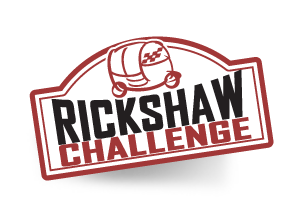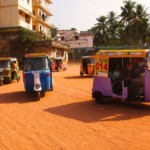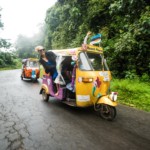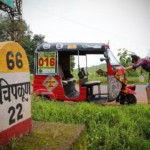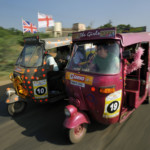Cochin Jews are India’s oldest Jewish community, their time in Kerala dating back millennia.
For at least one thousand years, and possibly much longer, there have been Jews living in the region of Kerala, on India’s South Western Malabar coast. Though most have since moved to Israel, a select few remain, continuing to live peacefully and in harmony with the regions many other religious groups. Their story is one typical of India’s traditional tolerance, and a great example of the kind of diversity and openness encountered by participants of the Malabar Rampage rickshaw challenge.
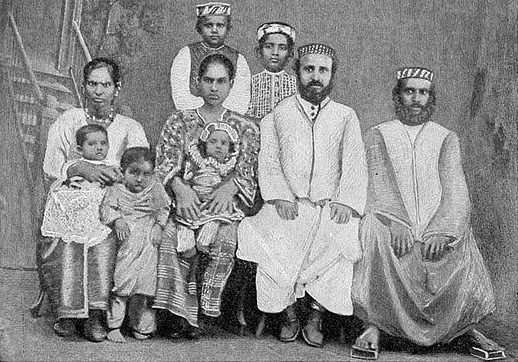
Kochi
The city of Kochi (also known as Cochin) is a major port, and has earned the nicknames the Queen of the Arabia Sea and the Gateway to Kerala. Its status as hub for trading spices, which it has maintained for hundreds of years, has ensured wealth and prosperity in addition to much immigration (from elsewhere in India and abroad). While almost half of those living in Kochi are Hindu, there are also sizeable Christian and Muslim populations. In smaller numbers you will find Jains, Sikhs, Buddhists and – famously – Jews.
The history of India’s Oldest Jewish community
The origins of Kochi’s Jewish past are disputed. Some historians have theorised that the first Jewish arrivals in Kerala came only in the early middle ages. However, it is often suggested that Jews emigrated to India after the destruction of the Second Temple, in 70 AD. An earlier claim is that the Cochin Jews descend from Israel’s Ten Lost Tribes, having left at the time of the Assyrian Exile in 722 BCE. However, many believe that Jews first reached the Malabar Coast as traders at the time of King Solomon, who lived in the 11th Century BCE. They are said to have returned to his temple with many spices, ivory, and even monkeys.
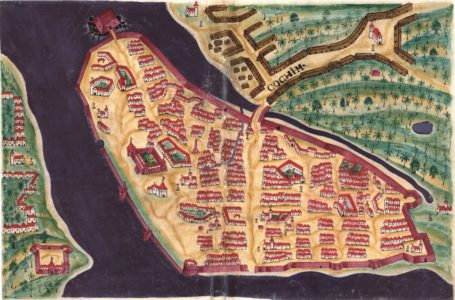
There is record of a royal grant, from the local king to the Jewish chief, in the form of copper plates, which has been dated to 1000 CE (though many still believe the previously accepted date of 379 AD). Also, a traveller from Spain reported that there were 1000 Jews in Southern India, in the year 1170. While the Jewish population was originally based in Cranganore, in 1341 flooding altered the coastline and they moved to Kochi, less than 50km South. It was here in 1344 that the built the (since destroyed) Kochangadi Synagogue.
The other Cochin Jews
Here is where the story of the oldest Jewish community gets more complicated. There is in fact another Jewish community in the same area, who arrived in the 15th and 16th centuries, Sephardi jews fleeing persecution in Spain and Portugal. These newcomers became known as the Paradesi, the local word for foreigner. The original Jewish community were the Madamalabari Jews, having long inhabited the Malabar coast.
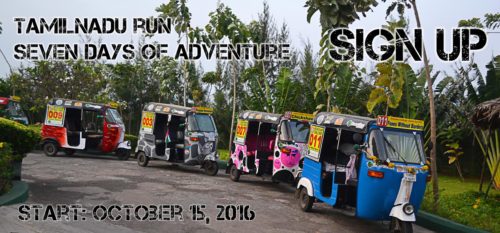
The Jews of both communities lived from their arrival onwards surprisingly free from anti-Semitism. Though Portuguese rule did bring some persecution, including the burning of a Paradesi synagogue, the rule of the Dutch and British was peaceful. Thanks to a certain level of integration into the community, including the sharing of traditions, the Cochin Jews and their non-Jewish neighbours lived in harmony. The one conflict, however, was between the Jews themselves.
The exodus of the Kerala Jews
For hundreds of years the Cochin Jews thrived and despite some leaving for bigger cities, by the 1950s Kerala had 2500 Jews,with eight synagogues. Remarkably though, in all that time the Malabari and Paradesi Jews never saw eye to eye. They shared the same interpretation of Judaism, flavoured by Indian custom. Compared to traditional Judaism, Cochin Jews have a greater emphasis on singing, and women are permitted to sing in public, and together with men. They have no rabbis, only community elders. And they enter the synagogue with bare feet, while their colourful festival clothing bears much similarity to Hindu style.
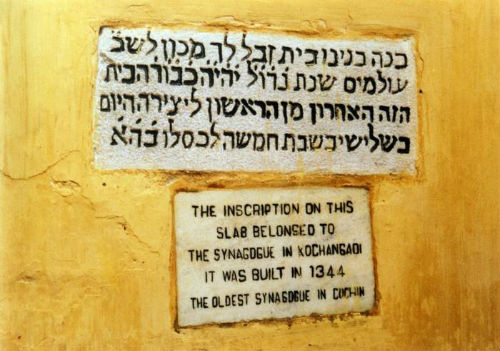
Despite shared customs, Malabari and Paradesi Jews competed for favour from local Hindu rulers. With the Malabari’s more ancient roots in the area and the Paradesi’s reputation as successful traders there was an element of class division, as well as race: the Malabari were known as the “black Jews”, contrasting with the “white” Paradesi. There was even a so-called“Jewish Ghandi”, Abraham Barek Salem, in the early 20th century, who sought to bring the groups together; he was unsuccessful, and to this day they do not even recognise each other’s faith.
The creation of India and Israel in the 1940s changed things dramatically. The majority of Malabari Jews left for Israel, where nowadays there are around 4000 “Cochin Jews”. Many of the Paradesi emigrated instead to Australia and other Commonwealth countries.
The remaining Cochin Jews
Only very few remain to this day. The leader of the Malabari community is Babu, caretaker of the historical Kadavumbagam synagogue, out of use since the ’70s. There are not the required ten men for shabat service, and he only managed to celebrate shabat recently when a tour group from Israel came over specially. He too plans to move to Israel in the near future.
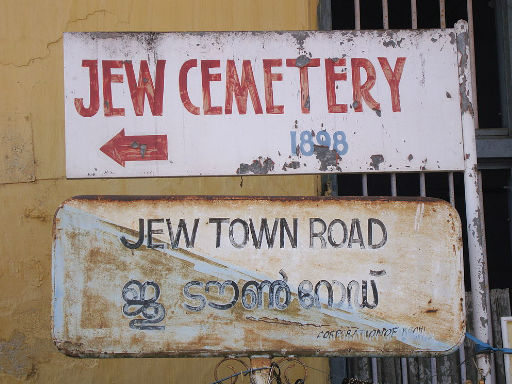
You can find the remnants of the Paradesi community in their historic Kochi area of Mattancherry, known as “Jew Town”. On Synagogue Lane you can find the embroidery shop run by 93 year-old Sarah Cohen, one of the remaining six Paradesi. If you can read Hebrew, look for a sign reading “Simcha”, meaning joy. However, the shop is nowadays operated by Ibrahim, a Muslim who is already contemplating how best to celebrate the history of the Cochin Jews when they, as appears likely, disappear from Kerala.
Rickshaw Challenge
If you’re intrigued by Kochi, and Kerala generally, you’re in luck: the Malabar Rampage rickshaw challenge passes right through! Next taking place in April 2017, a month sure to have a pleasant climate, the adventure rally will cover a route of over 1000km, from Trivandrum to Panaji. On the way you’ll see a lot of history and plenty of jaw-dropping scenery, whilst navigating Indian traffic on your tuk tuks (maximum speed 60 km/h)! From Kerala, across Karnataka, to Goa, it’ll be a crazy (and beautiful) week…
